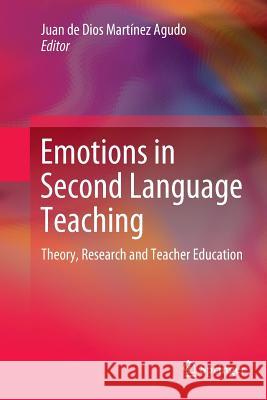Emotions in Second Language Teaching: Theory, Research and Teacher Education » książka
topmenu
Emotions in Second Language Teaching: Theory, Research and Teacher Education
ISBN-13: 9783030092306 / Angielski / Miękka / 2019 / 449 str.
Kategorie:
Kategorie BISAC:
Wydawca:
Springer
Język:
Angielski
ISBN-13:
9783030092306
Rok wydania:
2019
Wydanie:
Softcover Repri
Ilość stron:
449
Waga:
0.64 kg
Wymiary:
23.39 x 15.6 x 2.39
Oprawa:
Miękka
Wolumenów:
01
Dodatkowe informacje:
Wydanie ilustrowane











